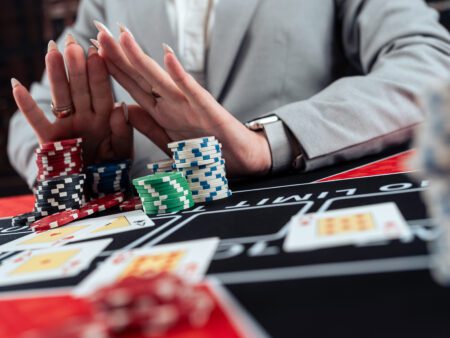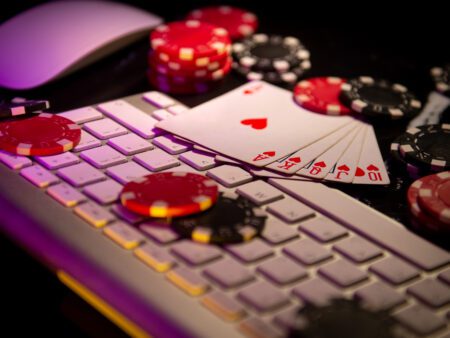Explore the influence of chance and the psychology of luck in online gambling. Learn how our beliefs, emotions, and cognitive biases impact our gambling behavior and decision-making.
The Psychology of Luck: Exploring the Influence of Chance in Gambling
Have you ever wondered why some people seem to always be lucky while others can’t catch a break? When it comes to gambling, luck plays a significant role in the outcomes we experience. But is luck purely random, or is there more to it than meets the eye?
In this article, we delve into the psychology of luck and the influence of chance in gambling. We’ll explore the fascinating connection between our beliefs about luck, our emotions, and our gambling behavior. So, grab a cup of coffee and let’s dive in!
The Illusion of Control
Human beings have a powerful need to feel in control of their lives and the outcomes they experience. In the realm of gambling, this need for control becomes particularly apparent. Even though we know that chance largely determines the outcome of a game, many of us still hold onto the belief that we can somehow influence the outcome through our actions or strategies.
Psychologists call this phenomenon the ‘illusion of control.’ It is the tendency to overestimate our ability to control or influence chance-based events. This illusion can lead gamblers to believe that they have a higher level of skill or control over the outcome than they actually do.
The Gambler’s Fallacy
Another common cognitive bias that influences our perception of luck is the gambler’s fallacy. The gambler’s fallacy is the belief that past events can predict future outcomes, even in games of pure chance. For example, if a coin has landed on heads five times in a row, the gambler’s fallacy would lead someone to believe that the next coin flip is more likely to land on tails to ‘balance out’ the previous outcomes.
This fallacy can lead to irrational decision-making and an inflated sense of control. It’s essential to recognize that each event in a game of chance, like flipping a coin or rolling a dice, is independent of previous events. The outcome of one event does not affect the outcome of the next.
The Role of Emotions
Emotions play a significant role in gambling and our perception of luck. When we experience a winning streak, feelings of excitement, happiness, and anticipation are triggered. These positive emotions can reinforce the belief that we are on a lucky streak and increase our willingness to take greater risks.
Conversely, a losing streak can lead to negative emotions such as frustration, disappointment, and anger. These emotions can cloud our judgment and lead to impulsive decisions or a desire to chase losses. The idea of ‘getting even’ and turning our luck around becomes appealing, even if it means taking unwise risks.
Managing Emotions and Building Resilience
So, how can we manage our emotions and build resilience when it comes to the ups and downs of gambling luck? Here are a few strategies:
- 1. Awareness: Be aware of your emotional state while gambling. Recognize when negative emotions are influencing your decision-making and take a step back to reevaluate.
- 2. Set Limits: Establish clear limits on your gambling activities, including time and money. Stick to these limits to prevent impulsive and emotional decision-making.
- 3. Learn from Losses: Instead of dwelling on losses, view them as learning opportunities. Reflect on your gameplay and strategies, and make adjustments for future sessions.
- 4. Focus on Skill-based Games: If you enjoy gambling, consider focusing on skill-based games rather than purely chance-based ones. These games give you a greater sense of control and allow you to develop and improve your skills over time.
By implementing these strategies, you can regain a sense of control over your gambling experience and reduce the impact of luck on your emotions and decision-making.
Conclusion
Luck is an integral part of gambling, but our beliefs, cognitive biases, and emotions also contribute to our experience. By understanding the psychology of luck, we can navigate the world of gambling more effectively. Remember, luck may come and go, but with the right mindset and strategies, we can make the most of every gambling opportunity. Good luck!










